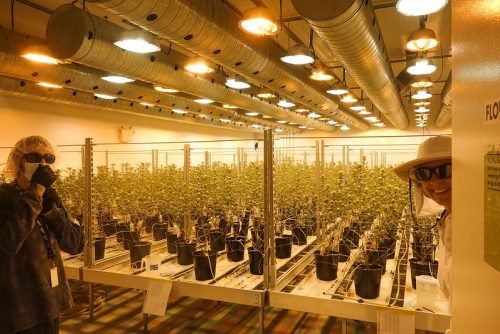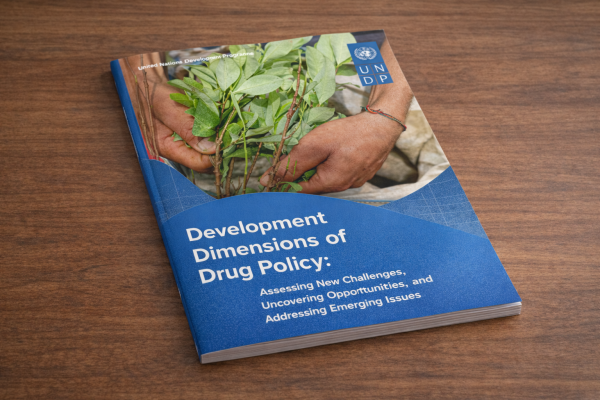21st July 2021
This is an edited extract from the newly updated 3rd edition of 'How to Regulate Cannabis: A Practical Guide'! You can purchase the hard copy for only £15 or access online for free.
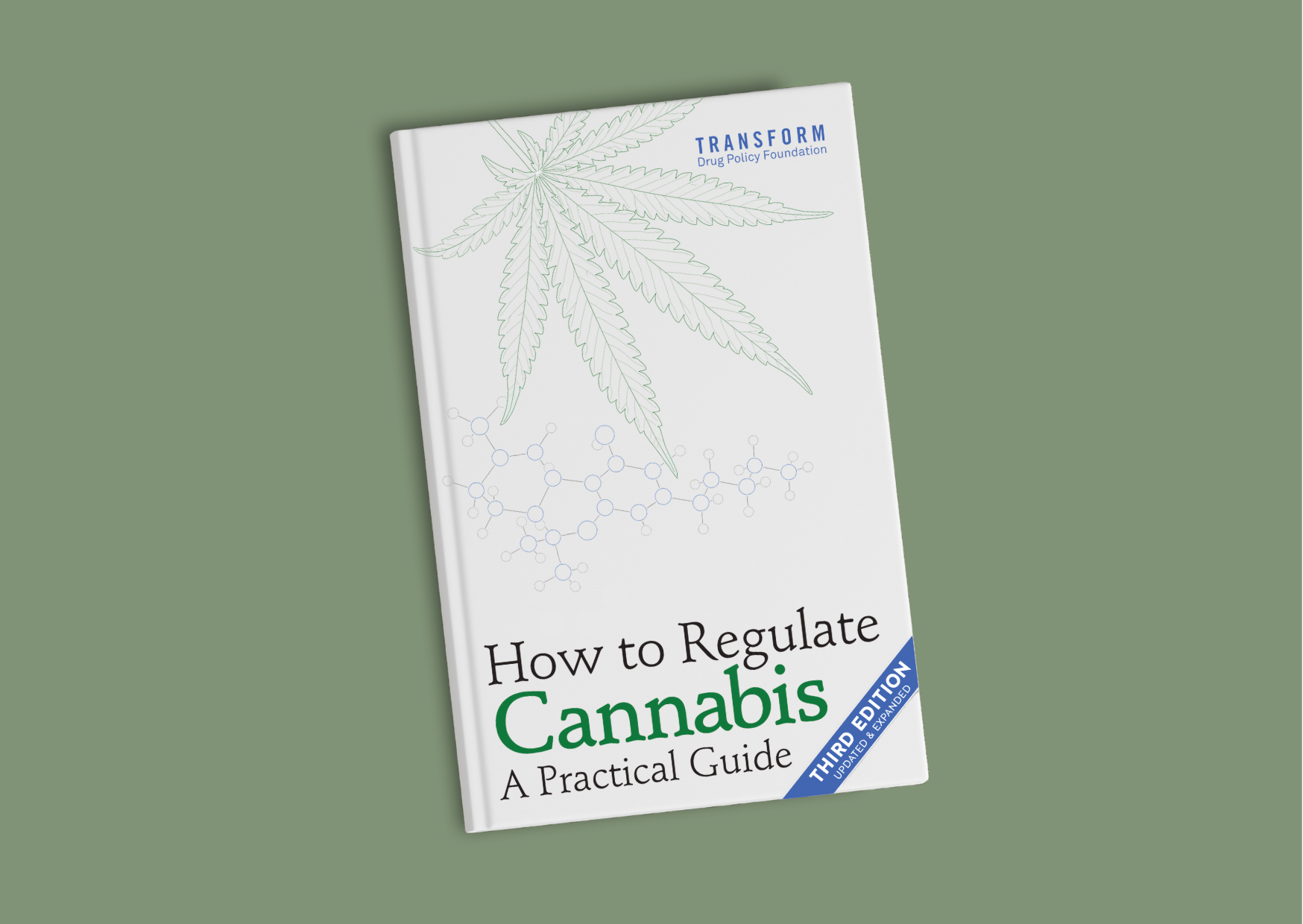
We have previously outlined key aims of cannabis policy, including the protection of public health, promotion of social justice and equity, and reduction of drug-related crime. As discussed throughout this book, cannabis policy making should be evidence based; policymakers should monitor, evaluate performance against, and improve outcomes in relation to these identified key aims. Cannabis policy that adopts such an approach, while seeking to promote social justice and protect public health, should naturally guard against excessive corporate influence — which will generally, if not inevitably, preference profit maximisation over public health or social justice, and is only concerned with externalities where profits are threatened.
The concept of ‘corporate capture’ refers to the means by which corporate entities pursue profit and power by ‘exerting undue influence over domestic and international decision-makers and public institutions’.[1] Such ‘corporate capture’ may weaken regulatory powers, as well as 'undermine the realization of human rights and the environment by exerting undue influence over domestic and international decision-makers and public institutions' more generally.[2] The mechanisms by which such influence is exerted can include: overt and behind the scenes and ‘soft’ lobbying (including provision of hospitality); direct and indirect funding of politicians or political parties; influencing provision of expertise through funding of think tanks, civil society organisations and academia; membership of government committees or task forces; and ‘revolving doors’ movement of staff between corporate and government posts.
Guarding against excessive influence in policy making necessitates constraining corporate power more generally, to prevent the emergence of corporate monopolies or market dominance by a few large actors. The history of both alcohol and tobacco regulation illustrate how difficult this can be. Starting from scratch, as would be the case in many jurisdictions for cannabis, offers an opportunity to learn from the lessons in other regulated drug sectors, as well as emerging experiences in cannabis markets, explored below.
It may, however, already be too late to ‘start from scratch’, or at least to start completely from scratch . Legal regulation in Canada has already led to the establishment of several multinational cannabis producers valued in multiple billions of dollars. While the overwhelming majority of non-medical market space is concentrated in North America, the similarity between medical and non-medical products means that Canadian market actors in particular have been able to seamlessly shift attention to, and obtain a stake in, medical markets elsewhere. The existence of truly multinational corporations also means that powerful entities are already waiting in the wings to capture emerging non-medical market space as it develops. Relatedly, the emergence of medical markets in a number of jurisdictions means that market dynamics favouring larger, more established businesses are already evident — given that many of these medical producers and retailers will inevitably seek to expand to serve the non-medical market once it is legalised.
This may not, therefore, be a complete blank slate. However, the first steps of legal regulation remain a vital opportunity to set goals and parameters, establishing the controls necessary to protect against corporate capture from the outset — through initial legislation and regulations. This includes the adoption of equitable licensing policies and social equity programmes (see the chapter here for more detailed discussion).
This discussion assumes that some level of corporate involvement in the market is permitted. However, as made clear in section 1 of this book, state monopoly control over elements of the market remains a viable and important option — and one that would, by removing the involvement of corporate actors, thoroughly deal with concerns over corporate capture (at least in those monopolised elements of the market). For this, and other reasons, state monopolies over parts or all of the market (or other regulatory models with increased government control, like the Borland model) should be given serious consideration, and are recommended, at least as a strategy for the commencement of the legal market while new norms are established.
Expanding beyond a medical cannabis market
The ‘blank slate’ offered by legal regulation can be muddied by existing medical cannabis markets. For jurisdictions with existing medical markets that wish to promote equitable market access, there is an inevitably unequal playing field, given some businesses are already well established, licensed and experienced at producing or retailing cannabis products. New actors looking to break into the market will face a strong competitive disadvantage, potentially requiring intervention to re-level this playing field. This is a key tenet of promoting ‘equity’ and ensuring a diverse market.
Most US states that have legalised non-medical cannabis have done so with pre-existing medical markets in place. Since legal regulation creates new administrative burdens, some states have implemented strategies which either directly or indirectly favour existing medical businesses. Such strategies simplify the administrative process; however they also create significant barriers to diverse participation in the market, and limit access for local small businesses, who may well represent the local communities more closely than the larger operators.
Colorado’s initial regulatory model, for example, indirectly preferenced existing medical actors by requiring that retailers produced at least 70% of cannabis that they sold. This requirement was pushed for by existing medical businesses as it was already in force to regulate medical cannabis sales, meaning these businesses had already achieved compliance with this regulatory hurdle, potentially prohibitive for smaller market actors. Indeed the requirement had the effect of delaying market access for new businesses, which had to develop capacity to overcome this hurdle.
Legalising states in the US have also pursued direct preferencing of existing medical businesses in initial licensing procedures. In Illinois, an ‘early application’ scheme for non-medical licences was implemented for established medical cannabis businesses in January 2020 — albeit for application fees of $30,000 plus 3% of the organisation’s annual sales revenue.[3] In Michigan, the Marijuana Regulatory Agency made it a requirement for a number of its licence types that primary applicants already possess a medical cannabis operating licence. This included all licences for retailing and processing cannabis, as well as the majority of cultivation licence types. Michigan also established equivalent licence types between medical and non-medical cannabis regulations, and allowed medical businesses to transfer 50% of their product for non-medical sales to streamline the transition.[4]
There is clearly some merit to preferential treatment from an administrative perspective. In some states, such as Michigan, this approach allowed non-medical sales to begin relatively quickly once licence applications opened. But, unless social justice and equity were key goals in medical licensing undertaken beforehand, the favouring of existing licence holders is unlikely to promote these outcomes. This is likely to be a bigger problem where medical markets are more established, have existed for longer, or are larger in size. Similarly, larger, well-established medical markets may lead to other licensing challenges; the long-established nature of Californian medical market actors has been linked to an enduring ‘grey’ market — whereby relatively light-touch state regulation or tolerance policies meant medical provision often acted as a retail proxy for non-medical consumers. In this context the aim of legal supply chains to ‘capture the market’ has proved challenging even after licensed non-medical sales were able to begin. Where established ‘grey’ markets already exist, licensing procedures are almost retroactive in nature; sales have already been tolerated for long periods of time, but now market actors are required to engage with often complex licensing procedures — with little incentive other than the sudden threat of enforcement — to perform the same activities.
As cannabis markets develop worldwide, many large cannabis companies are seeking to establish themselves in existing medical markets, speculating that future legal regulation may offer lucrative opportunities for those first through the door.[5]
Experiences in the US suggest that this may be a worthwhile strategy from a business perspective. From a regulatory perspective, however, these experiences highlight the need to pursue strong and effective licensing policies from the outset. Allowing established players to entrench and corner these markets, especially ahead of full legalisation, risks negating social equity measures later on.
Experiences from Canada
As touched on above, there is a long and well-documented history of powerful alcohol and tobacco industry actors deploying legal, PR and lobbying resources to undermine efforts to restrict or regulate their activities, and seeking to undermine research evidence that supports stricter regulation. Any regime of regulated drug markets has to be designed to mitigate this risk, and be robust enough to resist the intense pressure that powerful commercial players are able to exert. Indeed, many of the largest alcohol and tobacco companies are seeking to become key players in future cannabis markets. This should be resisted, with regulatory measures in place to prevent or limit their involvement.
The experiences of Canada are instructive for a number of reasons. Firstly, Canada — with a population of nearly 40 million — was the largest nationwide cannabis market at the time of its inception; while Uruguay regulated cannabis beforehand, it has one tenth the population size. Federal illegality in the US (although presently being challenged through the MORE Act) means that, despite the existence of multi-state operators, cannabis is effectively managed in a series of internal markets, with import and sale between states remaining illegal. Secondly, it is Canadian businesses more than any other that presently dominate international cannabis markets. Finally, it is clear that Canadian regulation did not do enough to guard against corporate capture from the outset, or maximise the opportunity to ‘start from scratch’ with a new market commodity — in part, perhaps, because so many actors already operated in the existing medical market — and that this has led to the concentration of market share (and, accordingly, power) among a select few actors.[6]
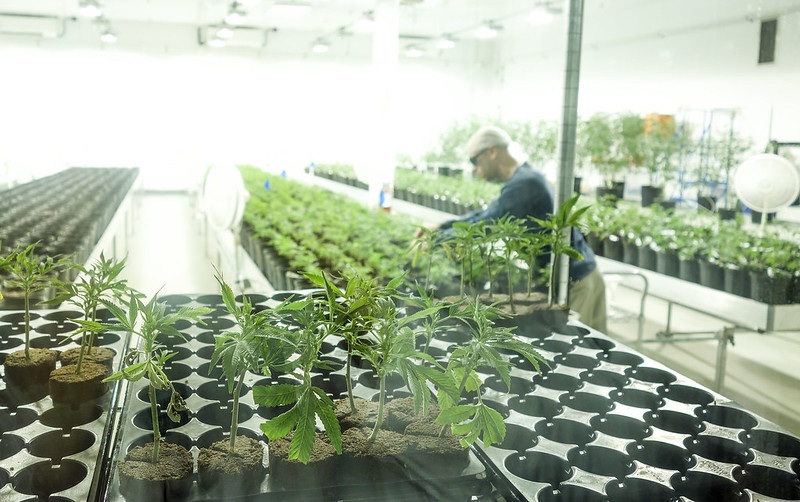
Background[7]
The emergence of the Canadian cannabis non-medical market in 2018 contributed to the so-called ‘green rush’ among stock market investors, with huge investment pouring into what was seen as a potentially profitable new commodity. Following legal regulation, a number of federally-licensed producers benefited from large (mainly speculative) investments. Heavy early investment was scaled back once the market picture became clearer, however, and stock prices dropped dramatically in the second half of 2019. The value of Canopy Growth and Cronos Group, two of the largest producers, more than halved between April and November 2019, while Aurora Cannabis dropped by around three quarters in the same period. There has since been an upturn in the market, but the cannabis industry speculator ‘bubble’ has seemingly burst. This resulted in reduced investment as well as significant job losses by October 2019.[8]
Demand for cannabis remains high, and the market is likely to grow again (particularly as the illegal market continues to be subsumed). Indeed, cannabis sales in 2020 grew substantially from 2019 despite store access being reduced due to COVID-19.[9] This was in direct contrast to other industries, with general retail sales in all Canadian sectors falling 10%.[10] But in Canada, there certainly appears to have been initial overestimation of potential profitability, resulting in the realignment of market perceptions in late-2019.
The beneficiaries
Despite hopes that the introduction of ‘micro-cultivation’ licences would open the market to smaller producers in Canada, this has not been the case. In 2019, the federal government announced that, in order to apply for a licence, potential suppliers were required to already have a production facility in place.[11] This meant that those unable to risk the initial investment costs, running to tens, if not hundreds of thousands of dollars, were deterred from applying. This contributed to an emerging market dominated by a relatively small number of large corporate actors.
The majority of money in the market is being made by large producers, who are licensed at a federal level and whose products can be sold by retailers across the country. In comparison, retail is managed by individual provinces and territories, some of which do not allow private retail actors at all. However, Canopy Growth (one of the largest producers) in particular has also made moves in provincial and territorial retail markets. In Nunavut, as of 2020, cannabis could only be purchased online from the Nunavut Liquor and Cannabis agency’s ‘approved agents’, Canopy Growth and AgMedica, meaning the two in effect already had a retail market duopoly.[12] In January 2020, Canopy was also reported as a frontrunner to take over Cannabis New Brunswick, the agency overseeing all retail sale in New Brunswick, which would have marked a shift from a government monopoly to a corporate monopoly in the region.[13] In other provinces, however, the potential for cannabis corporations to dominate the market at a retail level is limited by regulations: in Alberta, for instance, individuals or ‘groups of persons’ are not allowed to hold more than 15% of total licences at any one time.[14] This kind of licence limitation is vital to prevent monopolies and to facilitate wider market access.
International corporate capture
In recent years, Canadian companies have established a strong base for international expansion. So far, this has mostly involved capturing medical cannabis market space. Nevertheless, diversifying from medical to non-medical is relatively simple. This is particularly the case given that many of the Canadian producers were, prior to October 2017, already licensed producers in the Canadian medical market. We are therefore seeing Canadian companies, flush with speculative capital investment, globalising quickly: Canopy Growth already has established a medical presence in Australia, Europe, Africa and South America, largely through its subsidiary, Spectrum Therapeutics, while Cronos Group similarly operates across five continents.[15]
This has left Canadian companies in a strong position to take first advantage over potential cannabis legalisation. In France, for example, a market battle was sparked in early 2020 between Canadian companies and French producers ahead of a French trial of medical cannabis.[16] In 2019, Aurora Cannabis bought facilities in the Netherlands following news that the Dutch government was potentially expanding scope for medical cannabis beyond the Dutch monopoly-holder Bedrocan (which, in turn, previously operated a joint licensing agreement with Canopy Growth in Canada).[17] In 2018, Aurora Cannabis acquired the first Mexican company to obtain a medical cannabis distribution licence in 2018 (Mexico is legally regulating cannabis for non-medical consumption in 2021) while, in June 2019, Canopy announced a $3.4 billion deal to purchase US-based cannabis company Acreage, with a specific requirement being that the US legalises non-medical cannabis at the federal level within the next 7.5 years.[18] Canopy reportedly has at least two other similar deals with US companies.[19]
Market capture by Canadian companies in South America has drawn particular criticism. The Colombian Association of Cannabis Industries has estimated that medicinal cannabis companies in Colombia are nearly 75% owned by foreign investors. Over $600 million was invested in the Colombian market between January 2018 and June 2019, mainly by Canadian companies.[20] In 2018, Canopy Growth purchased Colombian company Spectrum Cannabis for $60 million, which it has since rebranded into its international medical subsidiary, Spectrum Therapeutics. Through Spectrum, it is licensed to produce cannabis over 13.6 million square feet in Colombia.[21] Meanwhile, Cronos Group has established a joint venture with an affiliate of Colombia’s leading agricultural services provider to “develop, cultivate, manufacture and export cannabis-based medicinal and consumer products for the Latin American and global markets”.[22] Elsewhere in South America, Aurora Cannabis, which has investment in 25 countries, purchased ‘ICC Labs’ in 2018, obtaining over 70% market share in Uruguay in the process.[23]
While South America has drawn the majority of attention at present, this will no doubt be an issue elsewhere going forward; Canadian companies have also been quick to exploit the opportunity created by the legalisation of medical cannabis production in Lesotho, with multi-million dollar investments in local farms and companies.[24] All of this raises important questions going forward on how markets should be structured, how traditional cannabis growing communities can be protected, and how fair trade and sustainable development can be guaranteed.[25] Without positive action at an international level, there is a real risk that long term outcomes will benefit corporates located in the Global North over the interests and wellbeing of communities working in the Global South.
Cross-sector investment
New cannabis markets have presented opportunities for actors in other sectors, including alcohol and tobacco companies, to diversify into the cannabis space. This raises obvious concerns, especially given the long history of the tobacco and alcohol industries lobbying against public health regulation. Tobacco and alcohol not only bring enormous financial muscle, but decades of lobbying and PR expertise which can be deployed against regulation geared towards both public health and social equity.
Altria, one of the world’s largest tobacco producers, has invested over a billion US dollars into Cronos Group, where it now owns a 45% stake and has three out of seven seats on the board.[26] Altria’s work with Cronos has included investment in Cronos’ research and development centre, focused on vaping devices — investing both resources and Altria employees to assist in the research.[27] In March 2021, British American Tobacco bought a £126m stake in Canadian producer OrganiGram, also with a focus on product innovation.[28] Constellation Brands (the third largest market share holder of all beer companies) owns a 38% share in Canopy Growth and has four out of seven seats on the board, while AB inBev and Molson Coors (two of the largest alcohol companies in the world) have joint partnerships with Canadian cannabis companies Tilray and HEXO respectively, to create drinkable cannabis products.[29]
Cannabis companies have also diversified into other sectors. For instance, Canopy Growth has purchased a majority stake in BioSteel Sports Nutrition, which is claimed to be bought by 70% of teams across North America’s four major professional sports leagues, with plans to introduce a CBD sports nutrition drink.[30] Similarly, Aurora Cannabis operates a research collaboration with the Ultimate Fighting Championship (UFC) to research potential uses of CBD products for MMA (mixed martial arts) fighters.[31] By creating brand associations with health, wellbeing and sports through non-psychoactive CBD products, companies can prepare the ground for more effectively promoting psychoactive cannabis-based products in the future. The CEO of Molson Coors has said that drinkable products could “soon make up 20 to 30 percent of cannabis sales”.[32] A large amount of spending by cannabis companies is focused on product development; Canopy Growth CEO, Mark Zukelin, has stated that “the IP [intellectual property] moat around our business” is one of the company’s greatest assets, boasting over 110 patents and 290 patent applications.[33]
Cannabis investment has now become mainstream — with big shareholders in Canopy Growth including Morgan Stanley and the Bank of Montreal.[34] Major shareholders in Aurora Cannabis include JP Morgan and the Norges Bank’s Government Pension Fund Global, which invests revenue from Norway’s oil and gas resources.[35] There has also been the development of cannabis exchange-traded funds (ETFs), like Alternative Harvest ETF, which invest heavily in Canadian cannabis companies across the board.[36]
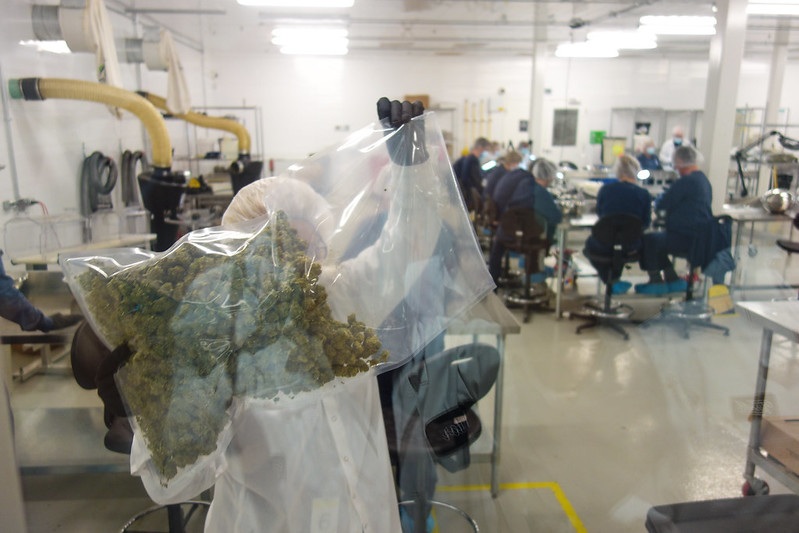
Lessons for other jurisdictions
A theme throughout this book, and in Transform’s work more generally,[37] has been to learn lessons from the early adopters of cannabis regulation in order to improve later regulatory practice. While the US states, Canada and Uruguay operated largely from a regulatory blank slate, future regulatory models have their experiences to learn from. We have seen how quickly the combination of massive capital investment, and weak or naive regulation, can lead to suboptimal outcomes. Future regulation needs to create a better balance between lifting the restrictions of prohibition and ensuring the new markets promote social wellbeing.
If policymakers wish for an equitable distribution of market space — and we believe they should — then they must act from the outset, to prevent corporate capture, avoid monopolisation and actively promote market access to smaller and marginalised actors. The potential for equitable licensing policies, and the utilisation of social equity programmes, is discussed in detail in the chapter on vendors (here) but is broadly applicable at a production level, too. The benefit of starting from scratch, or largely from scratch, should not be underestimated; and attempting to retrofit equitable mechanisms is much more difficult. Where larger corporate actors are involved in domestic and international markets — as is already happening and remains inevitable to some degree — it will be important to ensure minimum standards of transparency and accountability regarding corporate lobbying and other forms of influencing policy makers, to prevent undue influence. Measures should include: fully transparent registers of all lobbying of policy makers and officials; strict rules for lobbyists and think tanks — including transparency of funding sources; comprehensive freedom of information rules; and restrictions on corporate political funding and hospitality.
There has been a great deal of public health research in recent decades highlighting the failures of regulation in relation to corporate capture of tobacco and alcohol. Generally, we have been too late to learn our lessons in these areas, and realigning markets towards a public health focus has been all the more difficult as a result. We must ensure the same does not happen for cannabis.
This is an edited extract from the newly updated 3rd edition of 'How to Regulate Cannabis: A Practical Guide'! You can purchase the hard copy for only £15 or access online for free.
[1] International Network for Economic, Social and Cultural Rights (Undated) Corporate Capture Project. https://www.escr-net.org/corporateaccountability/corporatecapture
[2] International Network for Economic, Social and Cultural Rights (Undated) About Corporate Capture. https://www.escr-net.org/corporateaccountability/corporatecapture/about
[3] Illinois Department of Financial and Professional Regulation (Undated) Instructions for Early Approval Adult Use Dispensing or Organization License - Same Site. https://www.idfpr.com/Forms/AUC/F2365.pdf
[4] Michigan Department of Licensing and Regulatory Affairs (2019) Marijuana Regulatory Agency Releases Adult-Use Application. https://www.michigan.gov/lara/0,4601,7-154-89505-509160--,00.html; Mauger, C (2019) Michigan issues first license to sell recreational marijuana, The Detroit News 19th November. https://eu.detroitnews.com/story/news/local/michigan/2019/11/19/michigan-issues-1st-recreational-marijuana-license/4237643002/
[5] Connexion Journalist (2020) French medical cannabis trial sparks market battle, The Connexion 7th February. https://www.connexionfrance.co...; Pascual, A. (2019). Netherlands to expand cannabis production, potentially creating competition for Bedrocan, Marijuana Business Daily 24th April. https://mjbizdaily.com/netherl...; Aurora Cannabis Inc (2018). First License to Import, Manufacture, Store, and Distribute Medical Cannabis Containing THC in Mexico, Cision PR Newswire 10th December. https://www.prnewswire.com/new....
[6] A direct consequence of this is the lack of diversity among executives and directors, see: Maghsoudi, N. et al (2020) How Diverse is Canada’s Legal Cannabis Industry? Examining Race and Gender of its Executives and Directors, Centre on Drug Policy Evaluation. https://cdpe.org/publication/how-diverse-is-canadas-legal-cannabis-industry-examining-race-and-gender-of-its-executives-and-directors/
[7] The below text is extracted and adapted from: Slade, H. (2020) Capturing the market: Cannabis regulation in Canada, Transform Drug Policy Foundation and MUCD. https://transformdrugs.org/product/capturing-the-market/
[8] Gaviola, A. (2019) Major Weed Companies Are Cutting Hundreds of Jobs as the Industry Struggles, VICE 25th October. https://www.vice.com/en_ca/article/zmjk7w/major-canadian-weed-companies-are-cutting-hundreds-of-jobs-as-the-industry-struggles; McBride, S. (2019) Aurora Cannabis Is Dumping Its Pot, Which May Be A Sign It’s All Over, Forbes 21st October. https://www.forbes.com/sites/stephenmcbride1/2019/10/21/aurora-cannabis-is-dumping-its-pot-which-may-be-a-sign-its-all-over/#329811305775
[9] Statistics Canada (Undated) Cannabis Stats Hub: Sales from Cannabis Stores. https://www150.statcan.gc.ca/n1/pub/13-610-x/cannabis-eng.htm
[10] Canadian Centre on Substance Use and Addiction (2021) Cannabis Retail During COVID-19. https://www.ccsa.ca/cannabis-retail-during-covid-19-policy-brief
[11] Government of Canada (2019) Cannabis duty - Apply for a cannabis licence. https://www.canada.ca/en/revenue-agency/services/tax/businesses/topics/excise-duties-levies/apply-cannabis-licence.html
[12] Nunavut Liquor and Cannabis (Undated) Cannabis Purchasing. https://www.nulc.ca/news/?id=addf6310-40ce-e811-a979-000d3af49637; Government of Nunavut (2019) Buying cannabis legally in Nunavut. https://www.gov.nu.ca/finance/news/buying-cannabis-legally-nunavut
[13] Magee, S. (2020) Eight companies seek to take over Cannabis NB, CBC 13th January. https://www.cbc.ca/news/canada/new-brunswick/cannabis-pot-new-brunswick-companies-1.5424992
[14] Province of Alberta (2018) Gaming, Liquor and Cannabis Act: Gaming and Liquor Amendment Regulation, s106. http://www.qp.alberta.ca/documents/orders/Orders_in_Council/2018/218/2018_027.pdf
[15] Spectrum Therapeutics (Undated) Global Footprint. https://www.spectrumtherapeutics.com/international/en; Cronos Group (Undated) Brands. https://thecronosgroup.com/brands.php#
[16] Connexion Journalist (2020) French medical cannabis trial sparks market battle, The Connexion 7th February. https://www.connexionfrance.com/French-news/French-medical-cannabis-trial-sparks-market-battle-between-Canadian-and-European-firms
[17] Pascual, A. (2019) Netherlands to expand cannabis production, potentially creating competition for Bedrocan, Marijuana Business Daily 24th April. https://mjbizdaily.com/netherlands-to-expand-cannabis-production-potentially-jeopardizing-bedrocans-monopoly/
[18] Aurora Cannabis Inc (2018) First License to Import, Manufacture, Store, and Distribute Medical Cannabis Containing THC in Mexico, Cision PR Newswire 10th December. https://www.prnewswire.com/news-releases/aurora-cannabis-to-acquire-mexicos-farmacias-magistrales-sa-300762402.html; Dorbian, I. (2019) Canopy And Acreage Shareholders Approve $3.4 Billion Deal, But Don't Party Yet, Forbes 21st June. https://www.forbes.com/sites/irisdorbian/2019/06/21/canopy-and-acreage-shareholders-approve-3-4-billion-deal-but-dont-party-yet/#22ff1cda26d0
[19] Linnane, C. (2019) Cannabis stocks higher as Canopy shareholders meet, CannTrust unveils California venture, Market Watch 20th June. https://www.marketwatch.com/story/cannabis-stocks-higher-as-canopy-shareholders-meet-canntrust-unveils-california-venture-2019-06-19
[20] Rivera, N.M. (2019) The Challenges of Medicinal Cannabis in Colombia: A look at small - and medium - scale growers, Transnational Institute, p16. https://www.tni.org/files/publication-downloads/policybrief_52_eng_web.pdf
[21] See above footnote; Troup, R. (2019) Canopy Growth Provides International Update on Latin America, Australia, Europe and Africa, Signs Multi-Year Colombia Deal, Cannabis Investor 17th June. https://www.thecannabisinvestor.ca/canopy-growth-provides-international-update-on-latin-america-australia-europe-and-africa-signs-multi-year-colombia-deal/
[22] NCV Newswire (2018) Cronos Group Enters Latin America with Colombia Joint Venture, New Cannabis Ventures 29th August. https://www.newcannabisventures.com/cronos-group-enters-latin-america-with-colombia-joint-venture/
[23] Paley, D.M. (2019) Canada’s Cannabis Colonialism, Toward Freedom 8th October. https://towardfreedom.org/story/canadas-cannabis-colonialism/; Trefis Team (2018) Aurora Cannabis Makes Inroads Into South America With Latest Acquisition, Forbes 11th September. https://www.forbes.com/sites/greatspeculations/2018/09/11/aurora-cannabis-makes-inroads-into-south-america-with-latest-acquisition/#34cf2f7c4ca1
[24] Vickers, E. (2019) The small African kingdom that’s perfect for growing cannabis, but maybe not for regulating it, Quartz Africa 9/11/19. https://qz.com/africa/1744366/lesotho-is-perfect-growing-cannabis-but-not-regulation/
[25] See: Jelsma, M., Kay, S. and Bewley-Taylor, D. (2019) Fair(er) Trade Options for the
Cannabis Market, Swansea University and Transnational Institute. https://www.tni.org/files/publication-downloads/fair_trade_options_for_the_cannabis_market.pdf
[26] Hirsch, L. (2018) Altria to invest $1.8 billion in cannabis company Cronos Group, exits some e-cig brands, CNBC 7th December. https://www.cnbc.com/2018/12/07/altria-to-invest-1point8-billion-in-cannabis-company-cronos-group.html
[27] Peters, B. (2019) Why An Analyst Calls This Cannabis Stock The 'New King In The North', Investor’s Business Daily 18th October. https://www.investors.com/news/cronos-group-stock-king-in-north/
[28] Khan, S. and Cavale, S. (2021), BAT looks beyond tobacco to Canadian marijuana, Reuters 11th March. https://www.reuters.com/article/bat-agreement-organigram-hldg/update-3-bat-looks-beyond-tobacco-to-canadian-marijuana-idUSL4N2L9306
[29] Canopy Growth (Undated) Governance. https://www.canopygrowth.com/investors/governance/board-of-directors/; Lewis, A.C. (2019) Drink up, stoners, The Verge. https://www.theverge.com/2019/7/30/18639829/weed-beer-drinkable-marijuana-cannabis-drinks-alcohol
[30] LoRé, M. (2019) Canopy Growth And BioSteel To Introduce CBD Products To Sports Nutrition Market, Forbes 23rd October. https://www.forbes.com/sites/michaellore/2019/10/23/canopy-growth-and-biosteel-to-introduce-cbd-products-to-sports-nutrition-market/#5b6edbbef9b7
[31] Button, A. (2019) Why the Aurora Cannabis-UFC Partnership Is a Huge Deal, The Motley Fool 29th May. https://www.fool.com/investing/international/2019/05/29/why-the-aurora-cannabis-ufc-partnership-is-a-huge.aspx
[32] Lewis, A.C. (2019) Drink up, stoners, The Verge. https://www.theverge.com/2019/7/30/18639829/weed-beer-drinkable-marijuana-cannabis-drinks-alcohol
[33] Paley, D.M. (2019) Canada’s Cannabis Colonialism, Toward Freedom 8th October. https://towardfreedom.org/story/canadas-cannabis-colonialism/
[34] Fintel (Undated) CGC / Canopy Growth Corporation - Institutional Ownership and Shareholders. Accessed 20 February 2020. https://fintel.io/so/us/cgc
[35] CNN Business (2020) Aurora Cannabis Inc, Accessed 19 February 2020. https://money.cnn.com/quote/shareholders/shareholders.html?symb=ACB&subView=institutional; Norges Bank Investment Management (Undated) About the fund. https://www.nbim.no/
[36] Wathen, J. (2018) 5 Things You Should Know About the Hottest Marijuana ETF, The Motley Fool 5th January. https://www.fool.com/investing/2018/01/05/5-things-you-should-know-about-the-hottest-marijua.aspx
[37] See: Slade, H. (2020) Altered States: Cannabis regulation in the US, Transform Drug Policy Foundation. https://transformdrugs.org/product/altered-states-cannabis-regulation-in-the-us/; and Slade, H. (2020) Capturing the market: Cannabis regulation in Canada, Transform Drug Policy Foundation and MUCD. https://transformdrugs.org/product/capturing-the-market/

